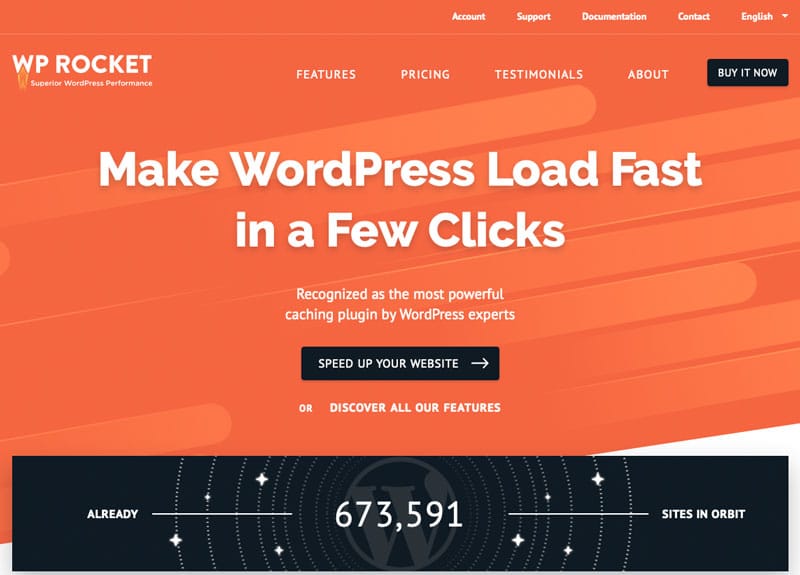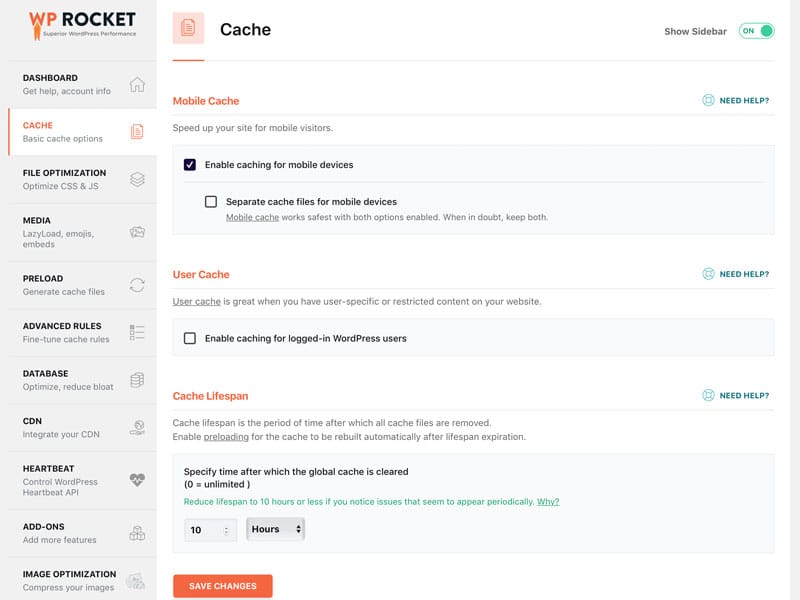Table of Contents
Last update on
Sure, website, browser, and server caching all help to decrease your WordPress site’s page load times.
But, are they all the same thing?
They’re not, and here’s more detail as well as the differences between a site cache, browser cache, and server cache.
What are Site, Browser, and Server Caches?
It’s helpful to demystify what site, browser, and server caches are before breaking each of them down by their differences. Knowing what they are helps to make their differences more pronounced.
What follows are details on each of these types of caches.
What is a Site Cache (or Page Cache)?
A site cache, or also known as an HTTP or page cache, is a system that temporarily stores data such as web pages, images, and similar media content when a web page is loaded for the first time.
It remembers the content and is able to quickly load the content each time the web page is visited again.
It works similarly to a person’s memory. Once you memorize something such as the answer to 12 x 12, you can easily recall it later when someone asks you for the answer.
Plus, you’re able to repeat the answer quickly each time.
When a user visits a page for the first time, a site cache commits selected content to memory. When that same page is visited again, the site cache is able to recall the same content, then load it much quicker when compared to the first visit. Each visit to the same page is also loaded just as quickly from the cache.
When you use site cache to do this, it’s referred to as “caching.” Site caching is the concept of caching from the client’s side.
This means caching that’s completely taken care of, and controlled by the end user. A website has only a limited way of administering client-side caching. It can tell a cache how long to store saved data.
That way, a page with content that doesn’t change often can be set to expire later on in the future. But, a page with images that are changed often, for example, can be requested to expire much sooner, or when the page is updated.
This ensures the end user can regularly see fresh content. But, pages that haven’t changed can still be loaded from the cache to speed up the time it takes to load the page.
For details, check out Caching for WordPress, Explained in Plain English.
What is a Browser Cache?
A browser cache is a kind of client-side cache, which means it’s also a type of site caching. It works in the same way and it’s a cache system that’s built into a browser.
Files and content that are saved are stored on your computer and are grouped with other files associated with the browser you use.
A browser cache temporarily saves these kinds of content:
- HTML pages
- CSS stylesheets
- JavaScript scripts
- Images
- Other types of multimedia content
According to Google, every browser has some form of browser cache. Although, some have a more comprehensive system such as those found in major options such as Chrome, Safari, Firefox, and other similar browsers.
As mentioned earlier, a website can communicate with a user’s browser. So, when a page is updated and the content stored in the cache is obsolete, the browser knows it should flush out the old content and save the updates in its place.
The end user can also manually clear out their browser’s cache whenever they want.
Check out Browser Caching, Explained In Plain English and Browser Caching for details.
What is a Server Cache?
A server cache is a type cache that’s related to site caching, except instead of temporarily saving content on the client side, it’s stored on a site’s server. Server caching is also fully handled and amistered on the server without any involvement of the end user, or a browser.
Types of server caching include, but aren’t limited to:
- Object caching – Storing database queries in a server-side cache for quick retrieval on subsequent page loads.
- CDN caching – A Content Delivery Network (CDN) is a cluster of servers that are geographically located all around the world. They cache content that’s loaded using the server that’s closest to the end user for much faster loading times.
- Opcode caching – PHP code is compiled between each request, then stored in a cache so it’s executable faster on repeated page loads.
Using a server cache for temporary storage is called server-side caching, or can be referred to as “caching” for general use in conversation.
Site Cache vs Browser Cache vs Server Cache
Now that website, browser, and server caching have been defined, you may be able to detect the differences. But, laying them all out can be helpful to better understand them.
Here are the main details on caching:
- A cache temporarily stores content for faster retrieval on repeated page loads.
- Using a cache for storage is called “caching.”
Below are the differences between each kind of cache, summarized for clarity:
- A site cache saves certain types of content and is controlled client-side.
- A browser cache saves the same types of content, and is saved on your computer, through your browser, and is controlled by the browser. It’s a type of client-side cache.
- Server caches store content, code, queries, or similar data on a server, or multiple servers, and is controlled by the server instead of a browser (client), or user.
Caching with WP Rocket
WP Rocket is a powerhouse WordPress caching plugin that specializes in page caching. It’s a popular option among WordPress experts. If you’re wondering what’s the best caching plugin for WordPress, you’ll likely find helpful information on our dedicated page.
W Rocket also installs like most other plugins. Once you activate it in a couple clicks, you’re already set up and ready to go. Site caching for your WordPress website and WP Rocket’s browser caching rules are automatically enabled and optimized without you having to lift a finger.

Although, there are plenty of additional options in case you want to get even more caching powers to further speed up your site’s load times.
You can enable caching for desktop and mobile devices as well as toggle caching for logged-in users, and you can set the expiry time for the cache.

There are also advanced file optimization options that can significantly improve site performance including:
- Combine Google Fonts files – Combining Google Fonts will reduce the number of HTTP requests.
- Remove query strings from static resources – This removes the version query string from static files and encodes it into the filename instead, to help improve your GTMetrix score.
- Minify CSS files – Minifying CSS removes whitespace and comments to reduce the file size.
- Combine CSS files – This merges all your files into one, reducing HTTP requests.
- Optimize CSS delivery – Optimizing CSS delivery eliminates render-blocking CSS on your website for faster perceived load time.
- Minify JavaScript files – This setting removes whitespace and comments to reduce the file size.
- Combine JavaScript files – Similarly to combining CSS files, combing your JavaScript files helps reduce HTTP requests by combining your site’s internal, third party and inline JavaScript.
- Load JavaScript deferred – Loading JavaScript deferred eliminates render-blocking JavaScript on your site and can improve load time.
You can also integrate the CDN of your choice for even more caching superpowers. There are loads of options like Batman’s utility belt, except WP Rocket is so much easier to set up and implement.
It’s a perfect caching solution for WordPress that’s consistently maintained and improved upon with loads of detailed documentation, and expert, helpful support.
Conclusion
With so many different types of caching options to speed up your WordPress site, it can be difficult to wrap your head around all of them. That includes what a site, browser, and server cache all happen to be.
Fortunately, you should now be up to speed. No pun intended.
What types of caching do you use? Are there other types of caching that you’re unsure of what they are, or the differences between them? Share your thoughts in the comments below.